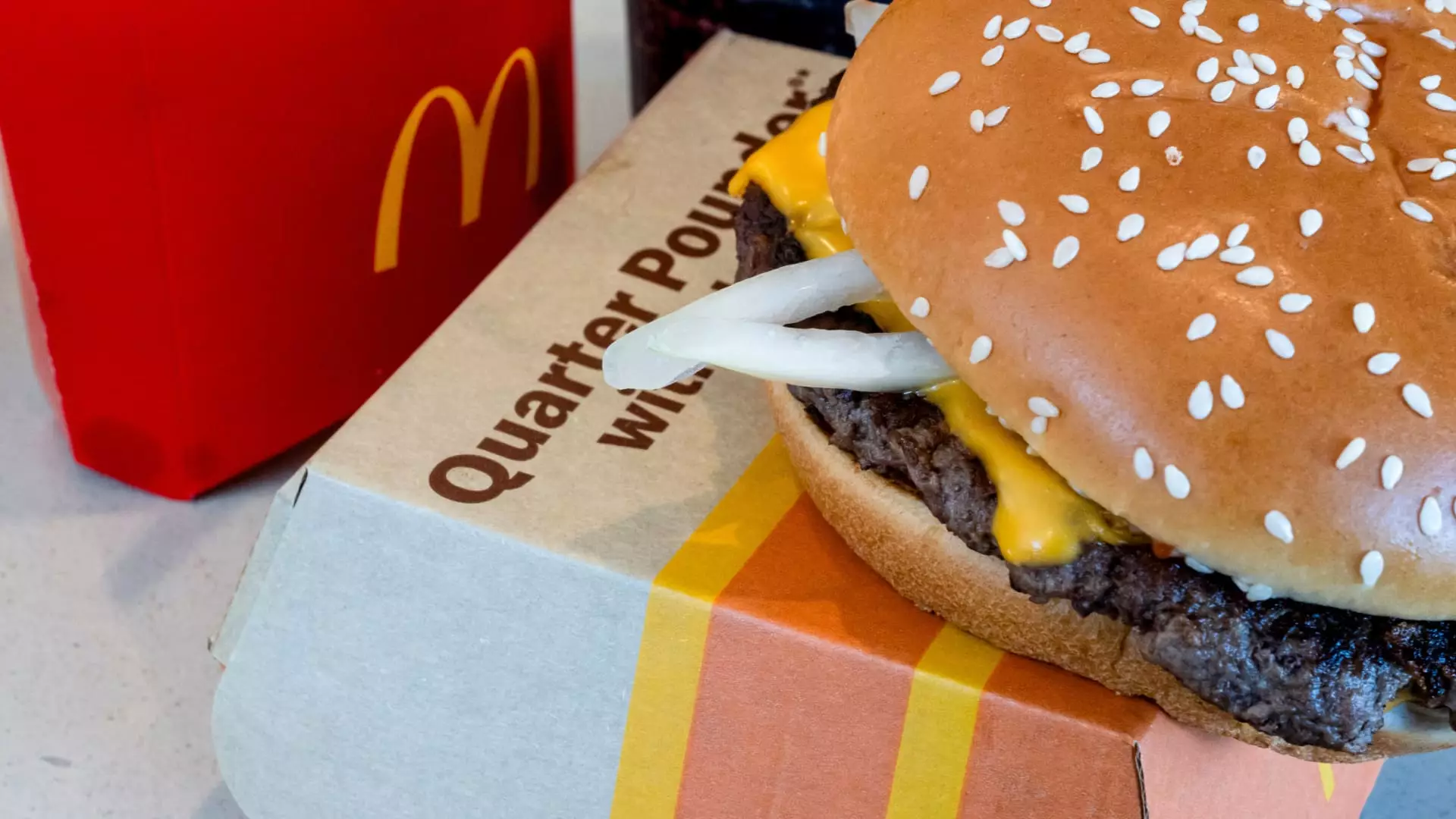The recent E. coli outbreak associated with McDonald’s Quarter Pounders has sparked significant concern across the United States, with 75 reported cases spanning 13 states, as the Centers for Disease Control and Prevention (CDC) investigates its origins. The CDC confirmed the outbreak resulted in 22 hospitalizations and at least one death involving an elderly individual in Colorado. This alarming situation has illuminated the potential risks associated with foodborne illnesses and the challenges that fast-food chains face in maintaining consumer trust during health crises.
The demographic span of the infected individuals is broad, ranging from teenagers to senior citizens, underscoring that E. coli can affect anyone irrespective of age. This outbreak also highlights an often overlooked aspect of food safety: the reported numbers may significantly underrepresent the actual situation. Many individuals may not seek medical attention for mild infections or may lack access to testing, leading to an undetected spread.
McDonald’s is no stranger to scrutiny when it comes to food safety, but the severity of this outbreak poses a new level of challenge. With Quarter Pounders being a flagship menu item that generates substantial revenue, the company is now faced with an imperative to protect its brand while ensuring customer safety. In response to the outbreak, the fast-food giant has swiftly instructed its restaurants in several states to remove slivered onions, identified as a potential vector for contamination, from their menus.
The connection to a specific supplier, California-based Taylor Farms, adds complexity to the situation. Taylor Farms has initiated a recall of multiple onion products due to potential contamination, igniting concerns about transparency in the supply chain. Additionally, McDonald’s has not ruled out its beef patties as a source of the outbreak, indicating a need for comprehensive testing and evaluation of its supply sources.
The immediate fallout from this outbreak has been reflected in McDonald’s share prices, which saw a 2% decline following the CDC’s announcements, marking a total drop of 6% since the outbreak was first reported. This downturn signals investor concern over potential long-term damage to the brand and illustrates the fragile interconnection between public health incidents and stock market performance for major corporations.
As consumers advocate for greater transparency and safety in food practices, a crisis like this can severely impact their trust. Although experts predict limited damage to McDonald’s brand if handled correctly, as seen in similar incidents with competitors, the company nevertheless must navigate public perception carefully. A crucial aspect of rebuilding trust will be McDonald’s ability to communicate effectively about the steps it is taking to ensure food safety moving forward.
As the E. coli outbreak has direct implications for fast-food chains beyond McDonald’s, competitors like Burger King, Taco Bell, Pizza Hut, and KFC have also begun to remove slivered onions from their menus in reaction to the crisis. This preemptive action is indicative of the competitive landscape in the fast-food industry, where a single outbreak can lead to widespread caution across multiple chains. Such moves are not just about safety but also about minimizing any potential erosion of consumer trust across the fast-food sector.
Federal investigations are ongoing as public health officials assess the roots of the outbreak. The responsibility lies not just with individual companies but also with regulatory authorities to enforce stringent safety measures. The collaboration between companies and food safety agencies will be crucial in preventing similar outbreaks in the future.
This E. coli outbreak serves as a critical case study on the importance of food safety, transparency in supply chains, and crisis management in the fast food industry. McDonald’s, while dealing with immediate operational challenges, must also consider long-term strategies to restore customer confidence and ensure compliance with health regulations.
The chain’s response to this outbreak could serve as a benchmark for how other companies navigate crises of this nature. As the CDC continues to investigate, the fast food industry as a whole must prioritize consumer safety measures to mitigate risks and cultivate an environment of trust and accountability in a market that remains highly competitive. Only through diligent and transparent practices can these chains hope to emerge from the crisis with their reputations intact and customers assured of their commitment to food safety.

